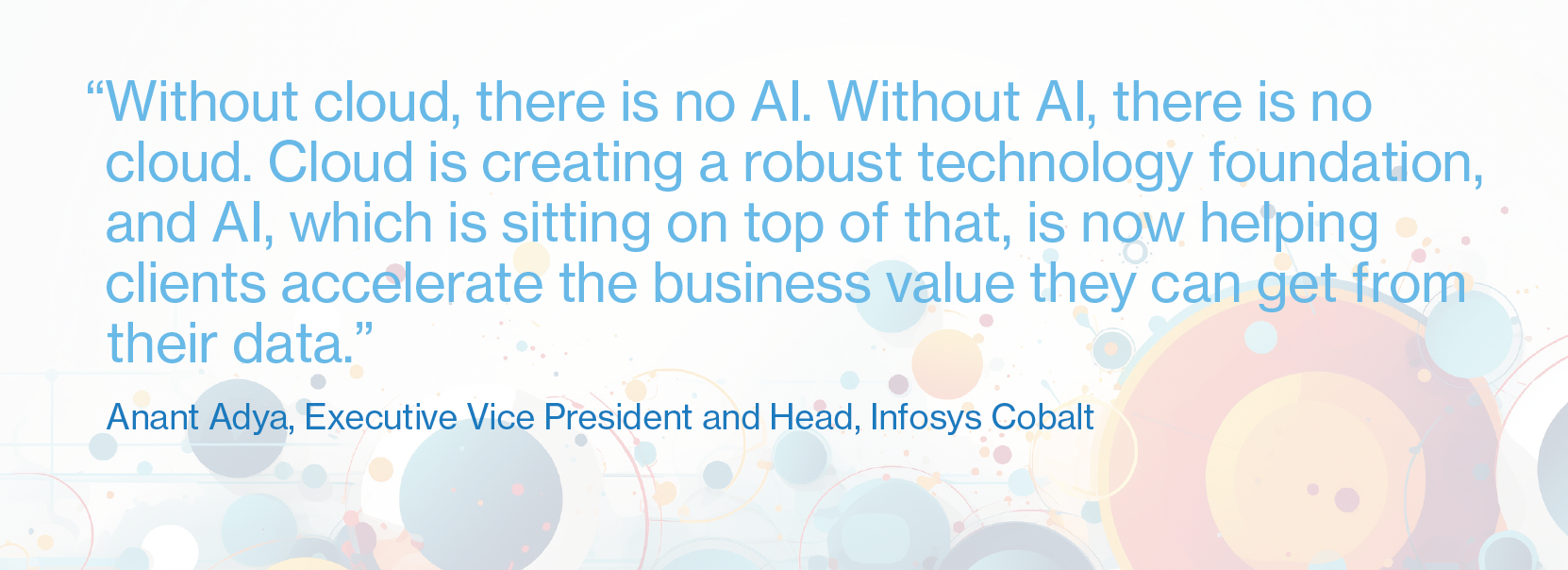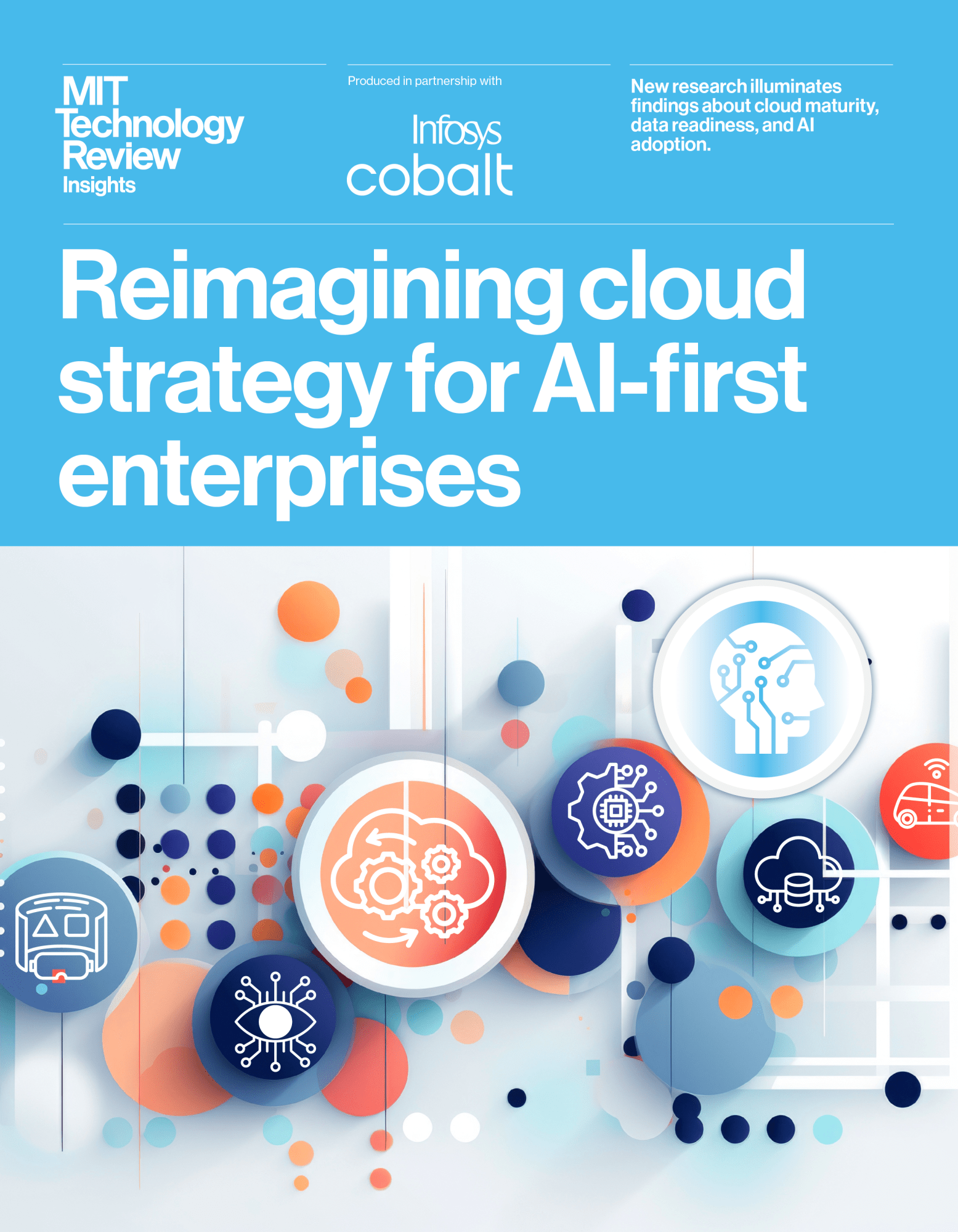Subtotal: 808,40€ (incl. VAT)
Reimagining cloud strategy for AI-first enterprises
The rise of generative artificial intelligence (AI), natural language processing, and computer vision has sparked lofty predictions: AI will revolutionize business operations, transform the nature of knowledge work, and boost companies’ bottom lines and the larger global economy by trillions of dollars.
Executives and technology leaders are eager to see these promises realized, and many are enjoying impressive results of early AI investments. Balakrishna D.R. (Bali), executive vice president, global services head, AI and industry verticals at Infosys, says that generative AI is already proving game-changing for tasks such as knowledge management, search and summarization, software development, and customer service across sectors such as financial services, retail, health care, and automotive.
Realizing AI’s full potential on a mass scale will require more than just executives’ enthusiasm; becoming a truly AI-first enterprise will require a significant, sustained investment in cloud infrastructure and strategy. In 2024, the cloud has evolved beyond its initial purpose as a storage tool and cost saver to become a crucial driver of innovation, transformation, and disruption. Now, with AI in the mix, enterprises are looking to the cloud to support large language models (LLMs) to maximize R&D performance and prevent cybersecurity attacks, among other high-impact use cases.
A 2023 report by Infosys looks at how prepared companies are to realize the combined potential of cloud and AI. To further assess this state of readiness, MIT Technology Review Insights and Infosys surveyed 500 business leaders across industries such as IT, manufacturing, financial services, and consumer goods about how their organizations are thinking about—and acting upon—an integrated cloud and AI strategy.
This research found that most companies are still experimenting and preparing their infrastructure landscape for AI from a cloud perspective—and many are planning additional investments to accelerate their progress.

This content was produced by Insights, the custom content arm of MIT Technology Review. It was not written by MIT Technology Review’s editorial staff.










